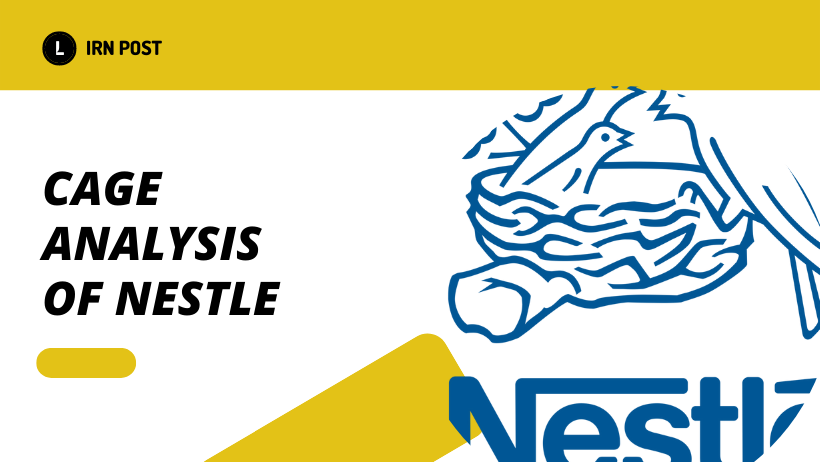Analysis
CAGE Analysis of Nestle

CAGE distance is a framework for comparing the distance between countries in terms of their cultural, administrative, geographic, and economic characteristics. This framework can be used to assess the potential for international expansion and challenges that a company, such as Nestle, may face when entering a new market.
Cultural Differences that Nestle May Face
As a global company, Nestle is likely to face a variety of cultural challenges in its international business operations.
Another geographic challenge that Nestle may face is the issue of cultural differences. Nestle operates in many different countries and regions, each with its unique culture and customs. This can make it difficult for the company to effectively market its products and understand its customers’ needs and preferences in different parts of the world.
Some potential challenges that the Nestle company may face include the following:
- Communication barriers: Nestle may face challenges in effectively communicating with its employees and customers in different countries and cultures due to language differences and varying communication styles.
- Different cultural norms and values: Nestle’s products and marketing strategies may not be well-received in all cultures due to differences in values and norms regarding food and nutrition.
- Different legal and regulatory frameworks: Nestle may need to navigate a complex web of local laws and regulations in the countries where it operates, which can vary greatly from one place to another.
- Different consumer preferences: Nestle may need to adapt its products and marketing strategies to suit consumers’ preferences in different countries and cultures.
- Local competition: Nestle may face competition from local companies that are more familiar with the local market and culture and may have an advantage over Nestle in terms of pricing, distribution, and other factors.
Overall, Nestle will need to carefully consider these and other cultural factors in order to effectively operate in international markets and succeed in the global business environment.
Administrative Differences that Nestle May Face
Nestle, like any other international business, can face a variety of administrative challenges when conducting business in foreign markets.
These challenges can include differences in regulations and legal frameworks, varying cultural and business practices, language barriers, and differences in economic and political systems.
Nestle may face logistics and supply chain management challenges, such as coordinating the movement of goods across international borders and managing relationships with foreign suppliers and partners.
Successfully navigating these administrative challenges requires a deep understanding of the local market and a willingness to adapt to different business environments.
Geographic Differences that Nestle May Face
There are a few potential geographic challenges that Nestle may face. One of the main challenges is the issue of distance.
Nestle, like any other international business, must consider the distance between the locations of its various facilities and the distance between its facilities and customers.
This can make it difficult to efficiently manage operations, transport goods, and coordinate with partners and suppliers.
Overall, geographic challenges can significantly impact the operations of an international business like Nestle, and the company must carefully consider these factors when making strategic decisions.
Economic Differences that Nestle May Face
Some of the key economic factors that Nestle may face include exchange rates, global economic growth, inflation, and changes in consumer demand.
Exchange rates can have a significant impact on Nestle’s business. Suppose the value of the Swiss Franc, where Nestle is headquartered, appreciates relative to other currencies. In that case, it can make Nestle’s products more expensive in other countries, potentially leading to a decline in sales. Conversely, a depreciation of the Franc could make Nestle’s products more affordable, potentially increasing sales.
Global economic growth is also an important factor to consider. If the global economy grows, it can increase demand for Nestle’s products, which can boost the company’s sales and profitability. On the other hand, a slowdown in global economic growth could lead to a decline in demand for Nestle’s products, which could hurt the company’s performance.
Inflation is another economic factor that Nestle must consider. If the rate of inflation is high, it can erode Nestle’s profit margins, as the company may need to increase prices to maintain its profitability. On the other hand, low inflation can help to keep costs down and improve profit margins.














